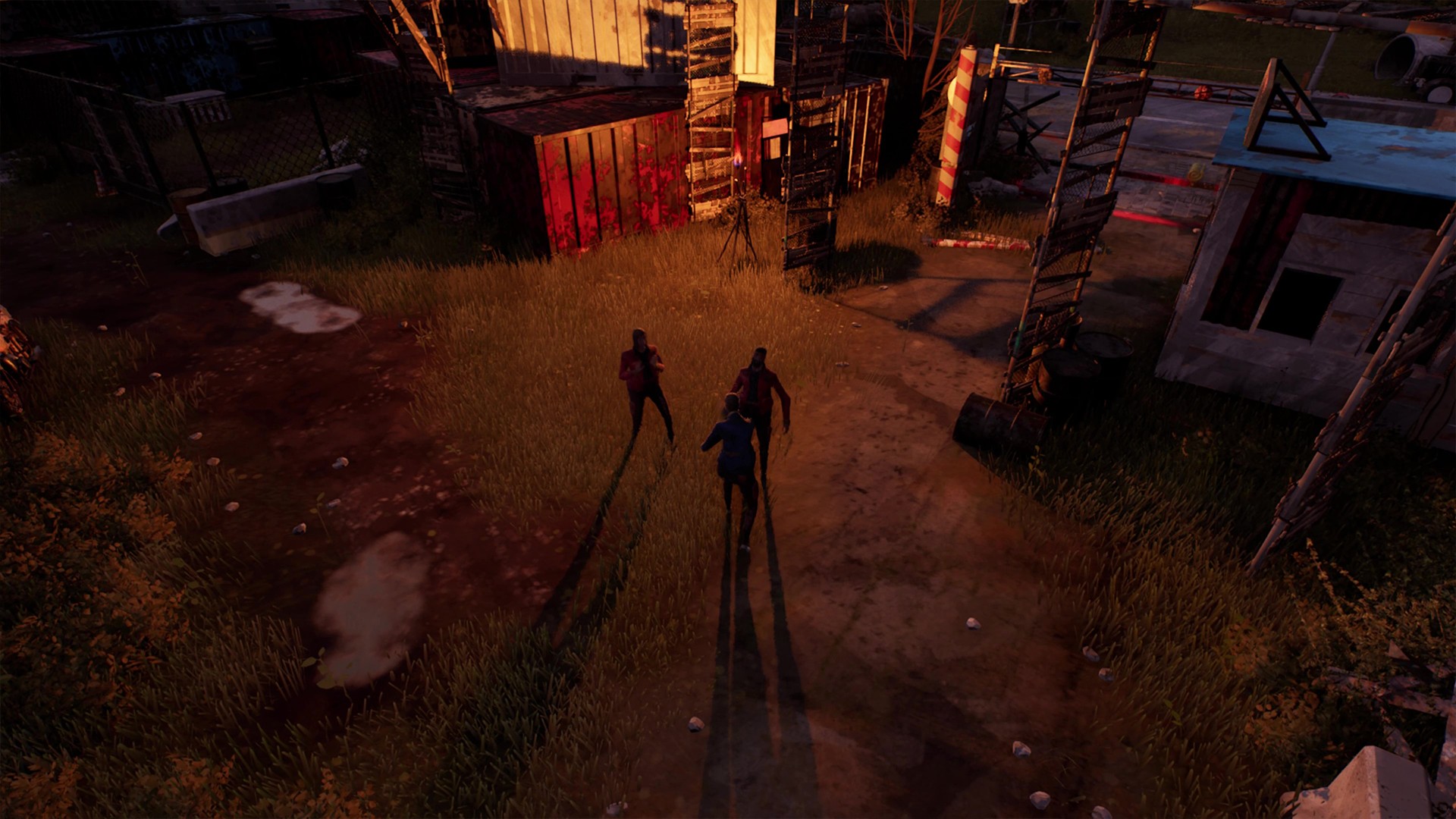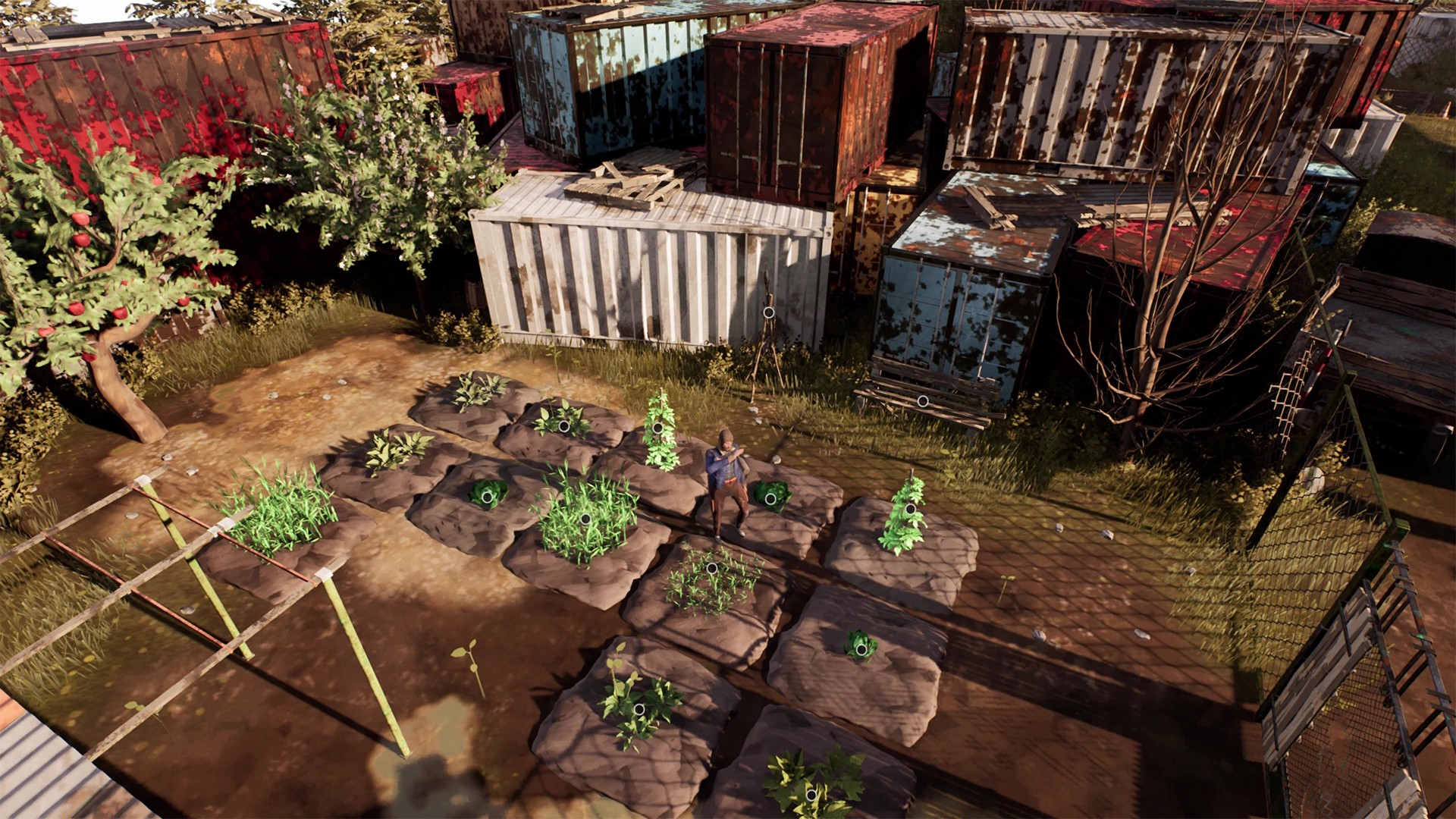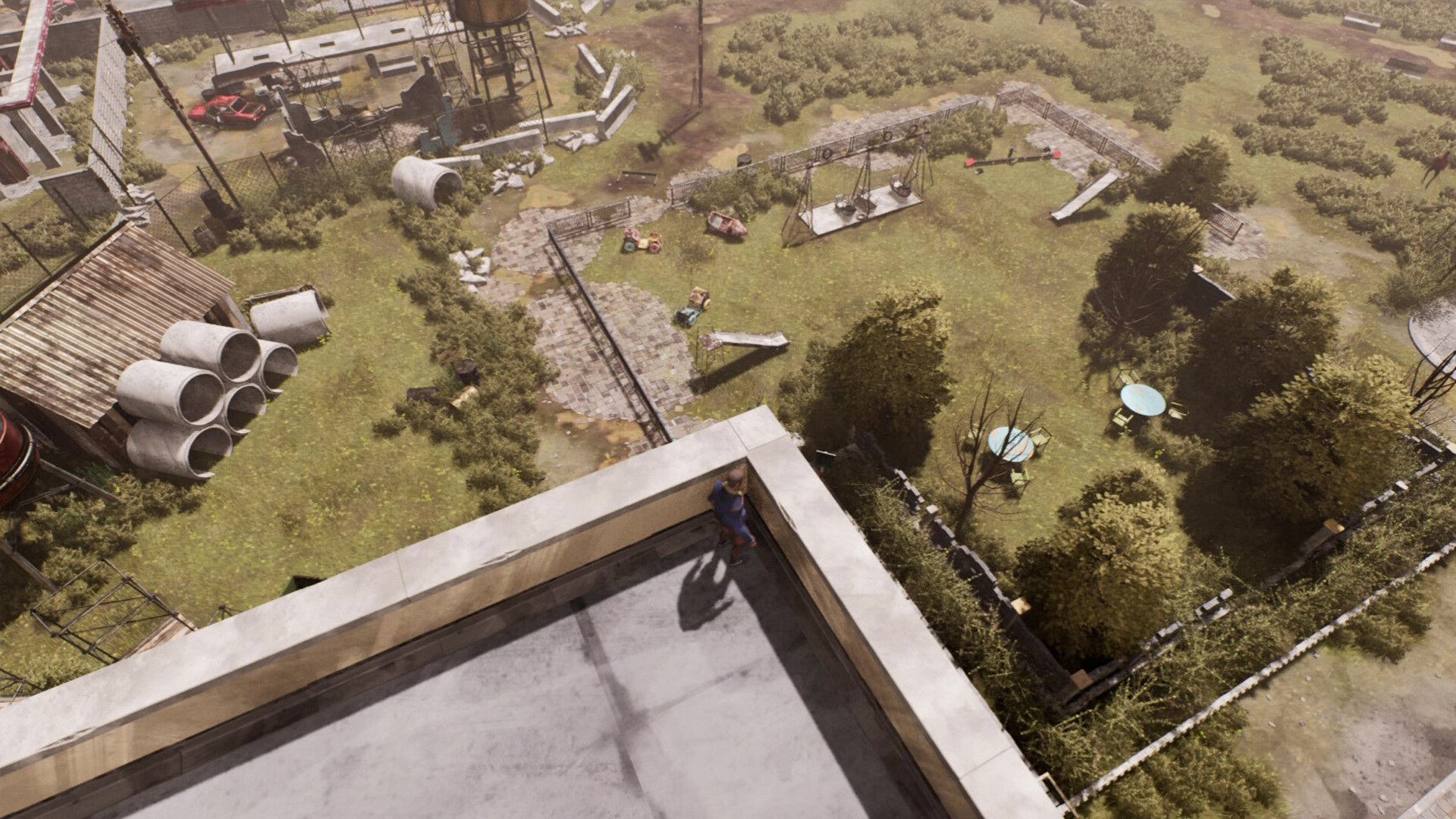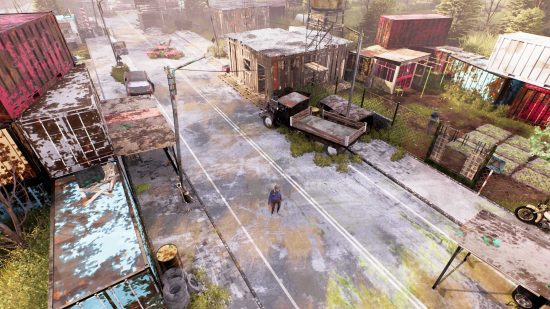It’s a promise that games and game developers make all the time – here is a world that truly reacts to what you do, and where every action has a consequence. But I walk around RPGs like Fallout and Skyrim, or maybe the vast sandbox worlds of GTA 5 and Assassin’s Creed, and I always feel like the NPCs and the various virtual people around me are in fact entirely robotic. They have their little routines – they’ll come out of their houses in the morning hours, stand by their stalls and shops all day, and then go to bed – but aside from a few stock responses and programmed behaviors, they’re essentially automatons. Imagine Whiterun, Megaton, or Night City, but every single NPC has a unique personality, and reacts organically both to you the player and every other character around them. Discussed exclusively with PCGamesN at GDC, a new sandbox game is pioneering this dream.
This is City 20, on the surface a dystopian sandbox game set in the aftermath of a nuclear disaster. The eponymous City 20 was once a thriving research center for new technologies, but an explosive accident has left it in ruins, while its population is quarantined inside its decaying walls under armed guard. Factions have gradually sprung up. There is a small, makeshift economy driven by homegrown food and simple trading. But everyone wants out. Your job is to devise and execute your own escape.
So far, that might sound similar to Fallout or the many survival and colony games you can find right now on Steam. But City 20 has a groundbreaking twist. Every single NPC has a highly detailed, reactive, and organic personality. They don’t just follow scripts. They won’t react to what you do in the same ways. In fact, the rules that govern the player’s behavior and interactivity are precisely the same as those underpinning the rest of the virtual population. If you can do something, the NPCs can, too.

An example. In one pseudo quest, I have the option to steal some supplies from a rival faction. All of the NPCs need to eat, sleep, and generally survive, which means a few of them have chosen to build a makeshift home inside the building containing the supplies. Although they don’t bother me at first, one of them catches me ‘liberating’ the food cache, and comes over to protest.
We exchange a few words, but when I threaten to attack him, he backs down and slinks away. A couple of days later, I’m accosted by two guards who say they’ve had reports that I’m a thief – turns out the little tattle tale has gone squealing to the cops. I’m promptly beaten in the street as punishment, and warned that next time I’ll be hauled away and forced to do hard labor.
The point is, none of this is scripted. The fact the NPCs were in the building in the first place is because their personality and their unique intelligence made them decide to use that particular warehouse as their home. Similarly, City 20 is an ongoing, persistent simulation, where everyone is living their lives even off screen. The guy who told on me did so of his own volition – even my punishment might have been different if the two cops were more pacifistic, or believed I deserved something other than a public beatdown. It’s a highly intricate organic system where everything happens by circumstance.

“We took some inspiration from games like Dwarf Fortress and Rimworld,” game director Matteo Sosso explains to PCGamesN at Game Developer’s Conference, “but it’s hard to describe it with a few words, because it starts from a very light survival game-type experience, with basic gameplay loops of eating, sleeping, and so on, but we want to expand the concept and create a kind of a living world around the player.
“From a technical standpoint, it’s the same code that drives the player and the NPCs. They have their own life, they have their own routines, they have things to do, they have desires and needs, and you can help them or you can decide not to help them, and you will face the consequences.”
Sosso, alongside Elisa Di Lorenzo, CEO and co-founder of developer Untold Games, show me what an NPC’s brain and personality look like under the game’s hood. It’s a vast sheet of parameters, drives, influences, and characteristics that more than fills the screen. Alongside this, the actual location of City 20 has its own system of governance, a calendar of weekly and daily events, like a food market and public announcements, that you and the simulated population around you may choose to follow.

“There are few games that really react to what you do,” Sosso continues. “But we have this editor that we call the snippet editor. It’s basically half graphical and half of our own code base, and you can code your personality snippets and then you can mount the snippets on top of each other.”
“We also have a kind of director that is partly inspired by Left 4 Dead,” Di Lorenzo explains. “And of course, we studied a lot of what The Sims has done. But mostly we’ve had to invent something from scratch.”
Videogames have long promised a living, breathing world where everything changes based on your actions, and everyone around you has their own distinct personality. City 20 feels like a gigantic surge towards making that a reality.

When it arrives in early access (we’re still waiting on a date) you will be able to experiment with its dynamic sandbox world for yourself. The full game will allow you to manufacture and create your own method of escape, utilizing the vast possibilities of its emergent world to your advantage. This is definitely one to watch. You can check out City 20 right here.
In the meantime, you should check out some of the other best open-world games, or maybe the best survival games available on PC.
